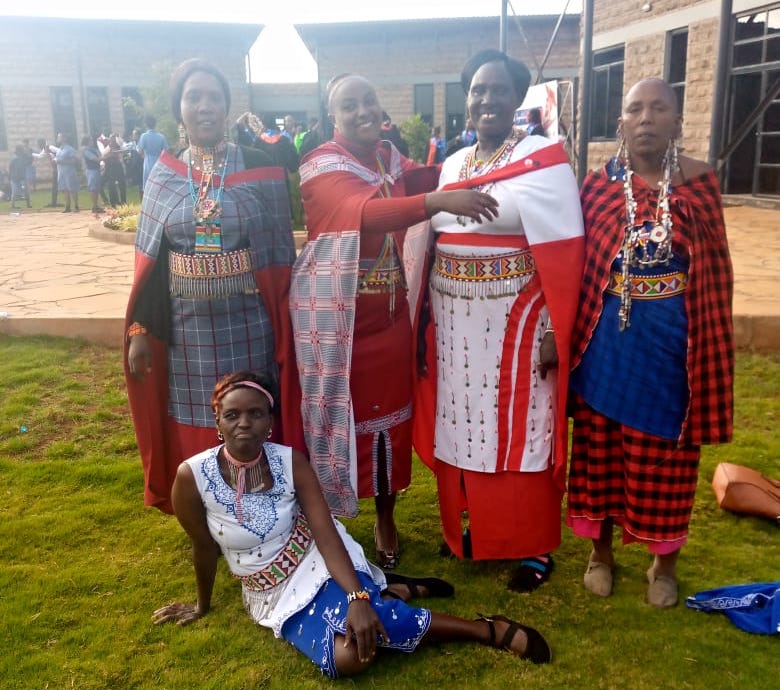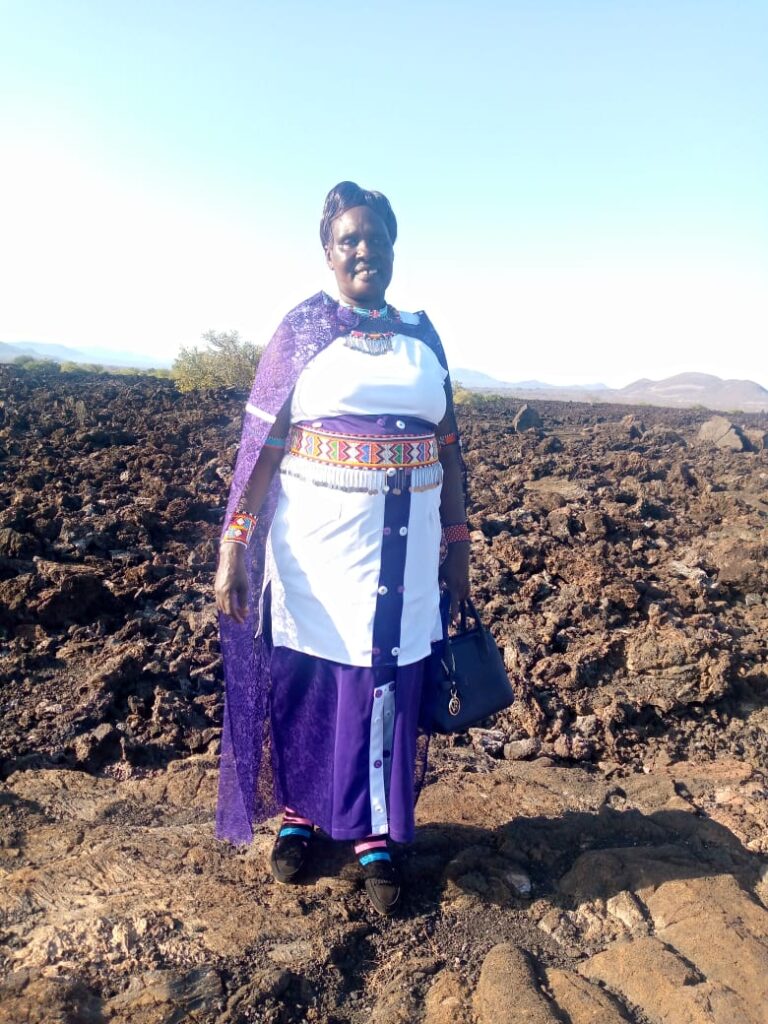“I believe if you empower a woman, you empower the whole nation.” -Lucy Simantoi Sayiore, Kuku Group Ranch Community Member, Chyulu Hills.


Lucy Simantoi Sayiore, a 62-year-old woman from the Kuku Group Ranch, is a passionate advocate for gender equality, with a focus on access to education for Maasai girls. For many years, the Maasai culture did not give girls the right to education. In her work, she realized that the harmful practice of Female Genital Mutilation (FGM) was the main hindrance to achieving her mission.
Together, with a group of other women who shared her dedication for positive change, she formed a Community Based Organization (CBO) known as the Ewongan e’ Maa Women Development Network. The aim of this CBO was to end all types of inequalities that girls face, with a key focus on ending the practice of FGM. The organization also focused their efforts on equal land ownership rights for women, and preventing early marriages and teen pregnancies.
Lucy describes her work as tough. She says you need passion to sustain the criticism. In the early years of their work, the group faced hostility from men, especially on the subject of equal ownership of land. She feels addressing this issue has not yet been achieved and that there is still a lot more work to be done. Due to the hostility and a lack of funding, the CBO wasn’t able to carry on with their efforts. Lucy however, did not give up. She has continued to champion for the rights of women and girls and has partnered with existing organizations in the region to end the practice of FGM and early marriage.
Lucy is on the board of trustees for a center in her village that provides girls access to a safe place to live. Her mission is to create an environment where girls can achieve their full potential and dreams.

Q: What challenges do women and girls face in your community?
A: “High illiteracy levels are one of the challenges faced by women and girls in my community. Many people still do not see the need and value of educating girls. Girls also lack role models. People they can look up to and motivate them to pursue their education. You find that girls’ transition from one level of education to another declines as they get older. Girls attend primary school and secondary schools but very few go on to university. Another challenge is early teen pregnancy, which leads to high numbers of school dropouts. High poverty levels are another challenge. This comes with so many problems, including limited access to health care for women, lack of family planning services, and lack of access to education. Women struggle to find food for their children, and are unable to focus on their own development.”
Q: How has the initiative you’ve been working on impacted the lives of women and girls in your community? What has changed?
A: “This initiative, through creating awareness, has helped women realize their potential. Their rights and roles in society. We have girls who have become role models in their communities, who have pursued their dreams and have good careers. We have eliminated stereotypes and demonstrated to the community that a girl who has not gone through FGM can lead a normal life. We have empowered women, reduced cases of FGM and early marriages by quickly responding to them. We have given girls a safe space where they can talk to us and come to us when they are in trouble. They can find a way out and achieve their dreams.”
Q: Why do you think it’s important to focus on empowering women and girls in your community?
A: “I believe if you empower a woman, you empower the whole nation. Women have a great influence on their children’s upbringing. Once they are informed, we have a generation that is informed. I also believe that women have a great capacity to solve existing problems in our societies today, but only if they are empowered and included.”
